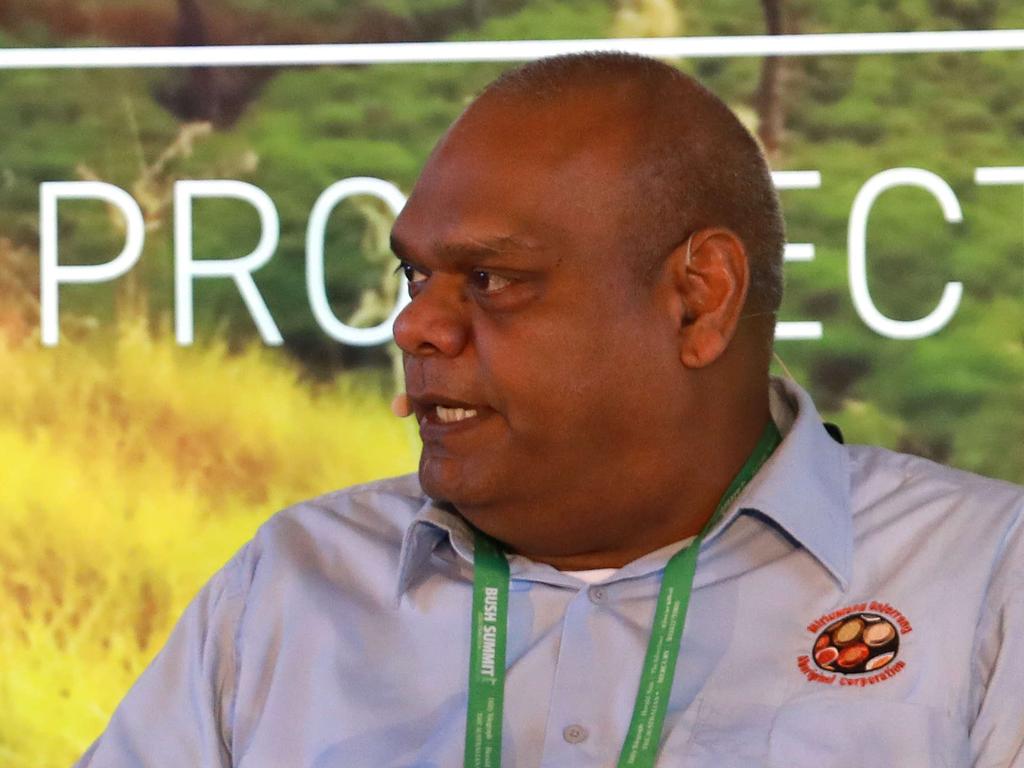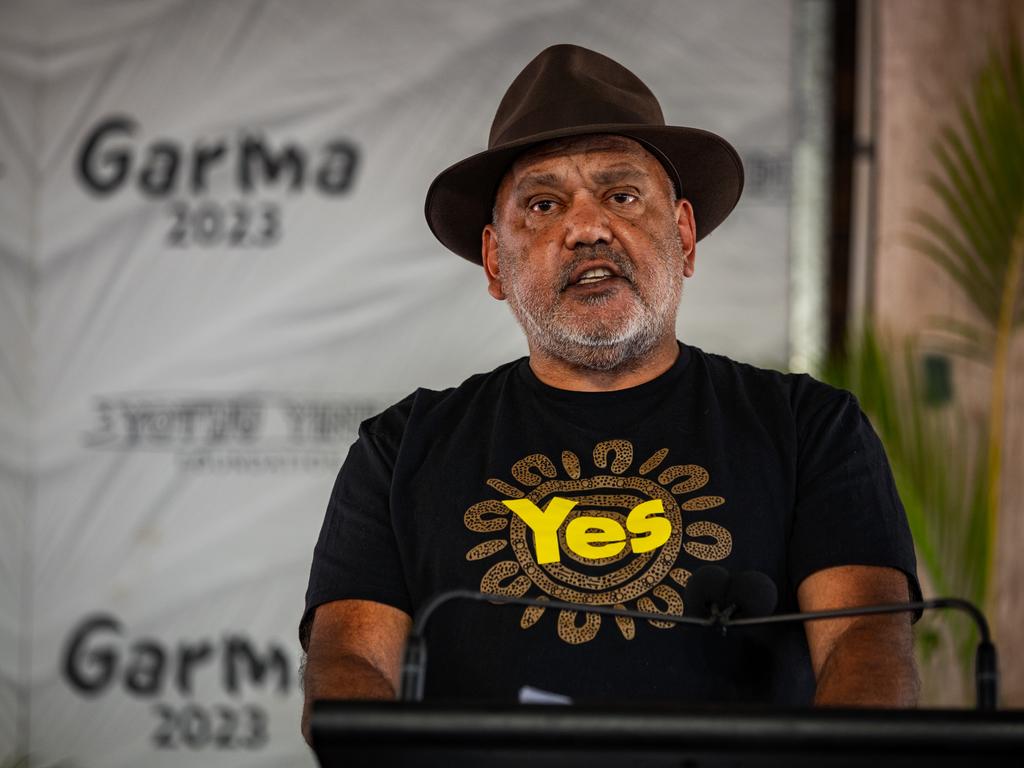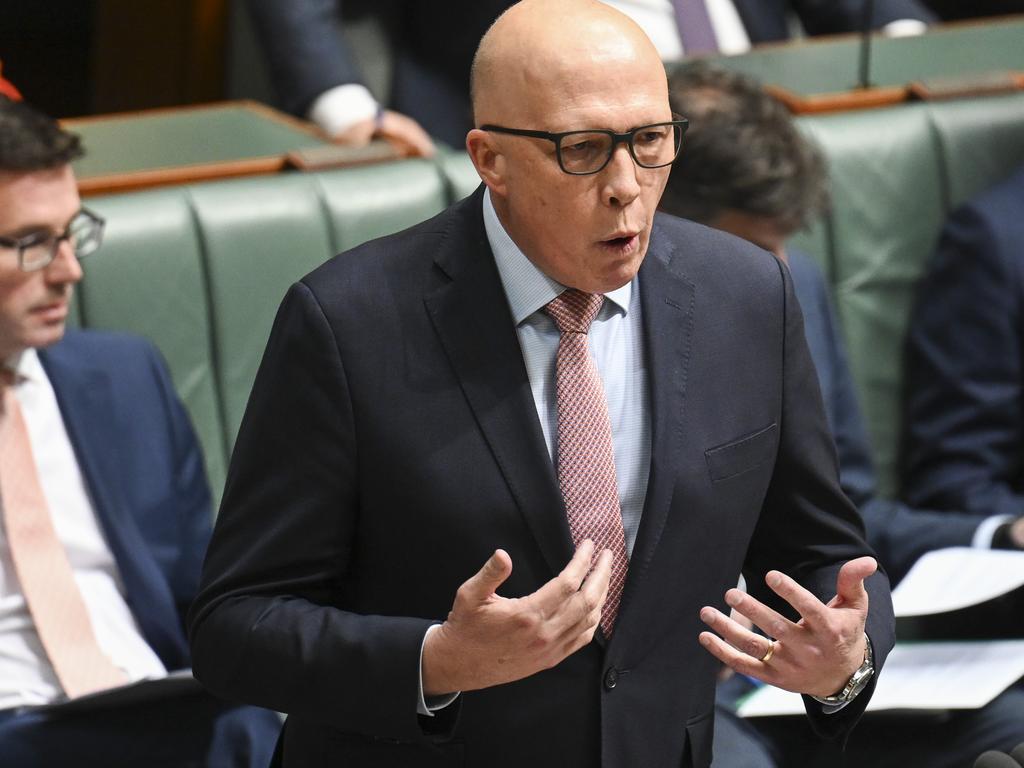Big Tech, Yes camp censors will only reinforce No vote

When a prime minister claims that voters are falling for conspiracy theories, you know he’s getting desperate, but to admit he hasn’t bothered to actually read any of the Uluru Statement beyond the first page – despite committing his government to implement it in full – says a lot about the sort of leader he is.
As suggested by his difficulties with economic statistics during the election campaign, Albanese has never been a details man. This week he copped a lengthy grilling about the voice from Melbourne radio legend Neil Mitchell, who asked him whether he agreed with the longer version of the Uluru Statement that he’d earlier described as “misinformation”.
In response, there was this bombshell: “I haven’t read it.”
Then he added: “Why would I? I know what the conclusion is.” Yet he continued to deny that the Uluru Statement had anything to do with treaty and reparations, even though “Voice, Treaty, Truth” has always been the Uluru activists’ mantra or, to directly quote the document, “the culmination of our agenda”.
A fortnight back in this column, I pointed out that the Uluru Statement from the Heart is not just the one-page poster, which the Prime Minister admits he has got up on his wall. It’s actually a 26-page document that, among other things, calls for reparations to be paid by the Australian taxpayer to Aboriginal people, seeking “a percentage of GDP”, to atone for the “invasion” that began in 1788 and which constitutes their “fundamental grievance” against the Crown.
My evidence for this was a previously unnoticed 112-page Freedom of Information release from the National Indigenous Australians Agency, which comprised records from the regional meetings that led to the 2017 Uluru Convention, and culminated in a 26-page document entitled “Uluru Statement from the Heart”.

This “Document 14” corresponded almost exactly with 16 highlighted pages in the Referendum Council’s final report that were described as “extracts from the Uluru Statement from the Heart”. Except, the council’s report omitted the crucial reference to reparations as a percentage of GDP, which emerged only thanks to the FOI.
Hence my claim that the PM wasn’t being honest with voters about all the ramifications of his voice, and – if it gets up – what comes next.
Since those revelations, the PM has been in overdrive insisting that the voice is just a benign one-page statement inviting the Australian people on a journey of reconciliation.
He told parliament last week that my revelations were a “conspiracy worthy of QAnon”; continuing this week with a claim on Sydney radio that “no serious person” thinks that the Uluru Statement is anything other than one page. Even though one of its principal authors, Megan Davis, had declared on at least six separate occasions, prior to last week, that it is more than just a one-page document. Pat Anderson – who co-chaired the Referendum Council which published 16 pages of extracts from the Uluru Statement – had also said that it was more than one page.
At the Sydney Peace Prize last year, not only did Davis say the Uluru statement was “actually 18 pages”, she also said it was “very important” for Australians to read all of it. Previously, she’d written in this newspaper that “the Uluru Statement from the Heart is occasionally mistaken as merely a one-page document when … in totality (it’s) closer to 18 pages and includes … a lengthy narrative called Our Story”. Yet this week, not only did the PM admit to not reading what voice supporters insist everyone should know; he also said that “Peta Credlin is a smart person … (but) she is saying things that she knows (are) not true”.
But the PM is not the only voice advocate now afflicted with reality denial. To help him out of this hole of his own making, Davis last week insisted the voice was really just one page, despite asserting otherwise for at least five years. And Anderson likewise chimed in, telling ABC’s 7.30 Report last week that it was just 439 words, despite telling a seminar at the University of Melbourne in 2022 that the “Uluru Statement is in fact 18 pages long”.
But this is now much more sinister than just a chorus of voice advocates trying to retrofit the facts to their current political needs.
On August 3, Sky News posted my night’s editorial on Facebook, substantiating the argument that the Uluru Statement is a lot more than just the PM’s one-page poster. A week later, the Big Tech censors blanked it out, plastering this statement where the video used to be – “False information. Checked by independent fact-checkers” – and a link to a document from a hardly unbiased partnership between the RMIT and the ABC.
In the document, the RMIT-ABC “fact-checkers” simply asserted that the Prime Minister, the Uluru Statement’s authors and the NIAA had denied my claim. They were completely oblivious to six years of previous statements by the authors who said otherwise, and disregarded the NIAA’s earlier written confirmation, from its FOI legal team, that Document 14 was indeed the full Uluru Statement.
A clear case of fact-checkers ignoring inconvenient but relevant facts, and Big Tech then blocking anything that’s doesn’t pass the RMIT-ABC test of political correctness.
This is not the first time Big Tech has censored arguments against the voice. Facebook has previously blocked an Institute of Public Affairs discussion featuring senators Jacinta Price and James McGrath. It’s also blocked a post from Advance Australia stating that the voice conferred “special rights” on Indigenous people, again citing RMIT-ABC fact-checkers, despite former judges making the very same point.
It’s wrong for Facebook to cancel views it doesn’t like, rather than be the platform for free speech that it used to claim to be, and letting people judge for themselves.

But think just how much worse this will get if the Albanese government’s proposed bill against misinformation and disinformation passes. Politically correct censorship will become routine if Big Tech faces multimillion-dollar fines for posting material that faceless government officials think is misleading or false. Especially with formerly free speech that the PM himself claims is “misinformation” because it doesn’t fit the political case he’s trying to make.
So far, there’s no suggestion that Big Tech has blocked any pro-voice advocacy, notwithstanding any number of social media posts that it’s racist to vote No or false claims that the official No campaign was using AI to fake Indigenous opposition to the voice.
This voice debate has become quite a dangerous moment for our country. There’s the PM committed to implementing “in full” a statement that he hasn’t fully read, in a bad case of endorsing the cover but not the contents.
There’s the risk Australians may be pressured by moral intimidation and weight of advertising into abandoning our historic commitment to being, in Bob Hawke’s words, a country with “no hierarchy of descent” and “no privilege of origin”. And then there’s the threat to free speech, justified on the grounds that any dissent from the Big Government, Big Business, Big Sport and Big Tech line is somehow “misinformation”.
As a newspaper columnist with my own TV show, I’m not after sympathy. And it’s hard to defend the more extreme statements that difficult subjects always elicit. Yet if free speech is not for everyone, ultimately, it is for no one.
You can listen to Abbott & Credlin on the Sky News Australia mobile app, website or wherever you find your podcasts, including Spotify, Google, Apple or Nova Player.







There are many reasons to vote against the voice but here are two more. First, the fact that Anthony Albanese is not across the detail of the change to our Constitution and system of government that he’s proposing; and, second, in shades of Brave New World, Big Tech’s increasing censorship of just one side of this national debate.